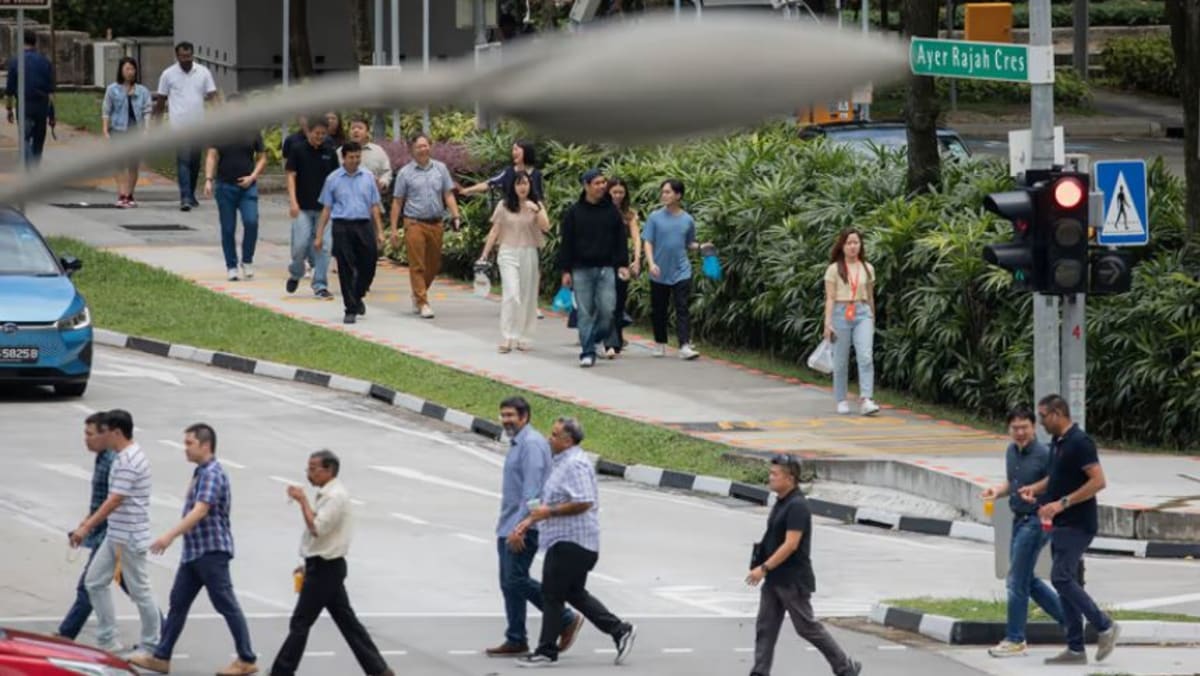SINGAPORE: Singapore has long resisted the idea of unemployment benefits. A job is the best form of welfare, as the maxim goes.
So when Prime Minister Lee Hsien Loong announced at the National Day Rally that there would be a new scheme to provide temporary financial aid for retrenched workers, there was much chatter. More recently, Deputy Prime Minister Lawrence Wong said that there were plans to introduce this support as part of a revamped SkillsFuture programme.
Over the years, there have been several proposals to introduce unemployment benefits. However, they were rejected by the government because they ran counter to Singapore’s values of self-reliance.
What has changed in the impetus to provide unemployment support?
Mr Wong said that the accelerated pace of economic transformation has prompted a rethink on the support for displaced workers. While Singapore has managed to keep unemployment rates low, technological advancements such as artificial intelligence could easily disrupt businesses and make jobs redundant.
The large number of layoffs in the tech sector last year was possibly a catalyst. It demonstrated how easily people could lose jobs because of technological changes and company reorganisation, factors arguably beyond their control. While workers have historically been displaced by technology, the current wave of change differs in its pace and scale.
Singapore’s move is an attempt to answer a worrying question: Even if a job is the best form of welfare, what happens if more people are forced out of one?
BENEFITS OF UNEMPLOYMENT SUPPORT MAY SURPASS THE COSTS
That Singapore now has plans to introduce financial support to those who are involuntarily displaced suggests that the government anticipates that the benefits will surpass the costs moving forward.
Unemployment benefits have their downsides: They could lower incentives for unemployed workers to find jobs, lead to people deliberately taking a long time to find a job, or even putting in less effort into existing jobs.
Many studies have shown that unemployment benefits affect labour supply. A 2015 study by Nobel Laureate David Card and his colleagues showed that greater unemployment benefits lead to longer durations of unemployment.
Of course, since the financial support comes from public coffers, taxpayers end up bearing the brunt of long-term welfare dependency. Even countries that recognise the need for unemployment benefit reform often find it politically challenging to do so.
Related:
Commentary: I was retrenched after nearly 6 years at a tech firm. This is how I got through it
Commentary: Gone are the days when workers can rely on a single job for their entire career
That being said, there are benefits from having unemployment support, and these could be large.
It helps workers who are involuntarily displaced meet their immediate financial needs, thereby relieving them of stress and anxiety. People with a family to support and loans to pay will not be forced to sell their assets in a hurry or hastily accept jobs that they are not well-suited for – that skills mismatch could have worse longer-term effects for employers and employees.
And this is perhaps one reason why most developed countries have some form of unemployment support programme.
NO CHANGE IN PHILOSOPHY ABOUT WELFARE
But don’t mistake this for a change in philosophy about welfare. Singapore’s approach will still be very much in line with its traditional ethos of enabling self-reliance.
A departing feature from the unemployment insurance systems typically practised in European countries is likely to lie in the training requirements.
While the details have not been announced, the fact that the unemployment benefits will come under the revamped SkillsFuture scheme suggests that benefits will likely be tied to training or career counselling.
Yet, there are practical issues that need to be resolved. How do we ensure unemployed workers will actively look for a job after training?
While it is easy to monitor whether individuals are undergoing training, it is more challenging to monitor whether they are actively looking for a job. Unless there is active official monitoring of each applicant, it will be important to take steps to minimise perverse incentives.




